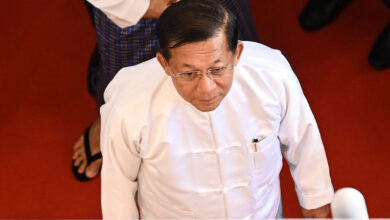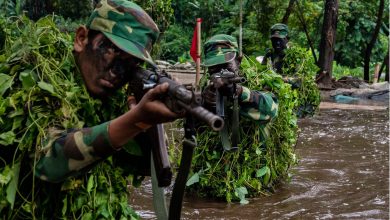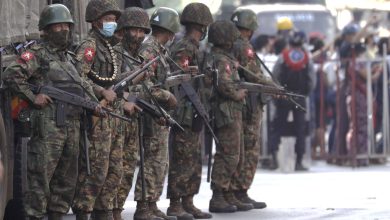
Democracy in Myanmar has been sabotaged by the country’s military junta. In its place, the regime has unleashed a lawless campaign of violence against an innocent civilian population. Thousands have been killed, and many more have been arrested to face fabricated charges in closed-door, military-run courts. These acts are the junta’s direct responses to a thriving opposition movement that has rejected its failed power grab.
The Network for Human Rights Documentation-Burma (ND-Burma) has been documenting state-wide, systematic human rights violations since 2004. Its 13 member organizations seek to collectively use the truth of what communities in Myanmar have endured to advocate for justice for victims. In the wake of last year’s attempted coup, it has continued its efforts to safely and securely document atrocities committed in the country.
Documentation of abuses is always a major challenge for human rights defenders, but over the past year, it has become even more difficult. As it intensifies its use of brutal military tactics across the country, the junta has also targeted those who attempt to collect evidence of its crimes. Internet blackouts and scorched-earth campaigns are just two of the ways the regime attempts to cover its tracks.
The four pillars of transitional justice are truth, justice, reparations, and non-recurrence (institutional reform). In Myanmar, however, all pathways towards granting and ensuring transitional justice have been blocked by the regime. A blanket of denial continues to smother the very function of institutions meant to uphold and preserve the rule of law.
Human rights documentation is a pathway to transitional justice that allows survivors to pursue accountability through the international system. Granting victims safe and accessible spaces to share their experiences ensures that the reconciliation process is clear from the beginning. Organizations such as ND-Burma act as facilitators for psycho-social support and as advocates for restitution. However, under the current regime, these options are no longer even remotely accessible.
There is no rule of law in Myanmar, or any reliable transitional justice mechanisms that would hold the military accountable for war crimes, crimes against humanity, or genocide. Attacks against innocent civilians continue with impunity. It’s important to emphasize that transitional justice is not solely about prosecutions and punishment. Justice also involves the provision of reparations to victims, recognition and acknowledgment of the truth about mass violations, and legal security reforms to guarantee non-repetition.
There is overwhelming evidence to suggest that Myanmar’s military forces have committed grave crimes under international law. In February 2022, ND-Burma released “The World Must Know,” a report produced together with the Karenni Human Rights Group that details the junta’s war crimes in Karenni State. These crimes were committed with complete impunity: Not one of the victims or their families in the case studies presented, including the dozens of civilians who were burned alive on December 24, 2021, has seen a single member of the military face any consequences for these unlawful acts.
Justice for victims is routinely denied as soldiers are protected in military courts. As it stands, Myanmar also has no reparations policy which would provide redress to victims or their families. In 2015, the Reparations Working Group was established to advocate for a state-led reparations program. Since February 2021, these efforts have been forcibly put on hold. With no significant policy related to institutional reform in Myanmar, military violations against various ethnic groups and civilians have continued.
ND-Burma documentation shows that survivors want institutional reform to prevent human rights violations from happening again. Fortunately, as Myanmar’s elected, legitimate government continues to look to the future, all stakeholders, including civil society organizations, have an opportunity to collaborate on the drafting of a new federal democratic constitution that guarantees the equality of all ethnic groups, enshrines their right to self-determination, and works toward an end to conflict and security sector reforms that ensure respect for human rights.
Truth-telling and human rights documentation initiatives have long been carried out by civil society organizations. For victims and survivors of the military junta’s harrowing assaults on civilian lives, justice is long overdue. These attacks have spanned decades, yet in the context of the failed coup, the calls for accountability demand concrete action which would finally put an end to the impunity.
Han Gyi is a long-time human rights defender advocating for transitional justice and democracy in Myanmar. He is currently the Coordinator of the Network for Human Rights Documentation – Burma.
Maggi Quadrini works on human rights for community-based organizations along the Thailand-Myanmar border.



